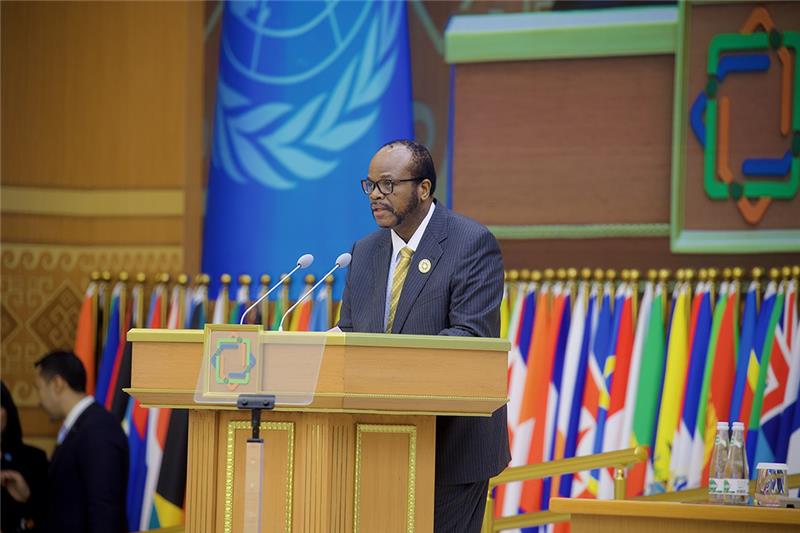
In a landmark step toward forging new international economic ties, Eswatini and Turkmenistan have opened formal trade negotiations, aiming to transform their currently non-existent trade relationship into a thriving partnership across multiple sectors.
Talks held on August 6 in Awaza, Turkmenistan, brought together high-level delegations from both nations, with Eswatini represented by Foreign Affairs and International Cooperation Minister Pholile Shakantu.
She was joined by ICT Minister Savannah Maziya, Commerce, Industry and Trade Minister Manqoba Khumalo, Public Works and Transport Minister Chief Ndlaluhlaza Ndwandwe, as well as Ambassador to the United Nations Thami Dlamini and Chief Mgwagwa Gamedze of the King’s Office.
The discussions centred on unlocking joint opportunities in information and communications technology, energy, infrastructure, mining, agriculture, and manufacturing.
Eswatini expressed a strong interest in advancing its technological ambitions through collaboration in space and satellite development, data centre infrastructure, and the production of high-tech goods like SIM cards and electronic devices.
The two countries are now expected to move towards formalising a cooperation agreement, with Eswatini planning to participate in Turkmenistan’s upcoming ICT exhibition in November 2025.
Sustainable energy also featured prominently, with Eswatini outlining its vision to support ICT growth and other industries through reliable, renewable energy solutions.
On infrastructure, the kingdom proposed exporting bitumen to neighbouring countries and requested access to Turkmenistan’s raw material stock exchange to explore procurement options.
Trade in textiles, a major employer in Eswatini with over 30,000 workers, emerged as a key discussion point.
The country is exploring cotton imports while inviting Turkmenistan to invest in its textile sector.
Agriculture also saw promising engagement, with Eswatini expressing interest in exporting local produce while seeking to import wheat and rice.
Eswatini further proposed cooperation in mining and fuel, offering investment opportunities in its iron ore and coal reserves and exploring options to source fuel supplies from Turkmenistan.
The potential export of sugar was raised as another avenue for expanding bilateral trade.



